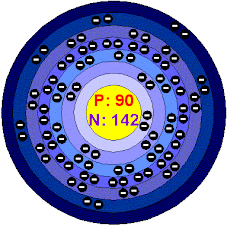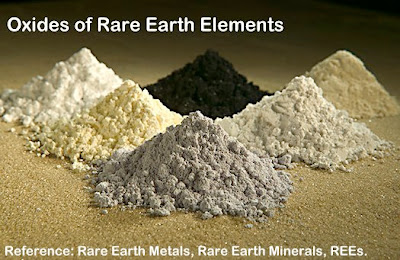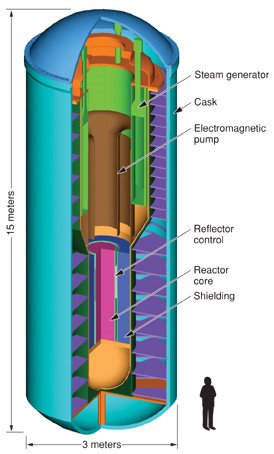Rare Earth Elements: The United States Government is Increasingly Supportive of Aggressive Domestic Mining of REEs.
Dear Friends:In the interests of shoring up national security, stimulating economic self-sufficiency and in a move to spur technological innovation and productivity, the U.S. government is becoming increasingly vociferous about the aggressive mining of domestic reserves of Rare Earth Elements ("REEs").
REEs are projected to become an increasingly significant component of the newest generation of technologies, and traditional supply sources of REEs from outside of the U.S., principally from China, are increasingly the subject of political posturing and deliberate trade restriction. The United States has vast untapped but geologically proven reserves of these REEs.
As supplies become threatened and as demand is projected to increase, the United States (through both the private and public sectors, acting in concert) is seeking to accelerate domestic mining and refining of these special metals.
The article below is merely an example of what is already "heating up."
For more information regarding the Rare Earth Elements, their unique properties and their uses, please refer directly to http://thoriumenergyinc.blogspot.com/, where the original posting of this article appeared.
While I do not offer financial or investment advice in any of my blogs, including, but not limited to The Global Futurist, Links 4 Life or Thorium And The Rare Earth Elements, the future appears to be looking increasingly positive regarding companies which own large tracts of land and the associated mining rights for REEs.
Faithfully,
Douglas Castle [ http://www.douglascastleblogosphere.com/ ]
####
In Wyoming, push to mine rare earths in US forest
Processing raw ore into rare earths is an intensive operation that has been associated with radioactive water spills. But with China slashing exports of rare earths and Washington concerned the U.S. military could face a shortage of materials for lasers, smart bombs, guided missiles, night-vision goggles and jet engines, Don Ranta is optimistic about his Black Hills National Forest mine proposal.
"Everything we've seen so far looks very, very bullish for it to be a commercial project," said Ranta, CEO of Vancouver, British Columbia-based Rare Element Resources. If approved and if it goes into production, the mine would be located about 15 miles from Devils Tower National Monument, the nation's first national monument.
For its particular combination of rare earths, Wyoming's Bear Lodge Mountains rank close behind a mine at Mountain Pass in southeastern California as North America's best verified source of the minerals, said John Kaiser, editor of the Kaiser Bottom Fish website, which tracks global metals markets and mining companies.
"In the long run, I think it will end up being even bigger than Mountain Pass," Kaiser said.
Rare earths are 17 minerals used to make many products that didn't exist all that long ago. Neodymium is used to make magnets in the electric motors of hybrid cars. Europium goes into compact fluorescent bulbs.
Rare earths with critical military applications include samarium, used for super-strong samarium-cobalt magnets that help steer guided missiles. The General Accounting Office, Congress' auditing arm, reported in April that the Navy's Aegis Spy-1 radar, expected to be used for 35 years, uses samarium-cobalt magnets that will need replacement during the system's service life. Defense contractors use China-supplied neodymium magnets in motors used to build fuel-saving hybrid electric drives for U.S. Navy destroyers, the GAO reported.
Rare earths aren't scarce. But few places exist with enough concentrations to mine profitably, and they are difficult to isolate in a purified form.
Cheap labor and low environmental standards enabled China to dominate the rare earths market starting in the 1990s, and the country currently supplies 97 percent of the world rare earths market.
But even as demand soars for rare earths, China is cracking down on rare earths smuggling and cutting legal exports. Together, that will reduce the global rare earths market by 25 percent.
The result will likely be dramatically less rare earths on the global market, Kaiser said, until new sources can be mined.
"That's going to cause a serious problem for users outside China," he said.
Global rare earths prices have soared in recent months, in some cases up to six-fold. In January, President Barack Obama signed a defense spending authorization ordering Defense Secretary Robert Gates to ensure U.S. access to rare earths.
Mountain Pass is the only U.S. mine producing rare earths. Mining there ceased because of heavy Chinese competition in 2002 and only resumed in December amid the much-improved market outlook.
In 1998, Greenwood Village, Colo.-based Molycorp Minerals Inc., operator of the Mountain Pass mine, paid a $410,000 fine after being accused of spilling 350,000 gallons of wastewater from the facility. The water contained lead and radioactive elements including uranium and thorium.
A $500 million reconstruction of the mine, begun in January, will produce rare earths more cheaply by recycling and reusing processing acids, according to company spokesman Jim Sims. He said the technique would allow lower production costs than the Chinese, "with a dramatically smaller environmental footprint."
Other potentially important untapped rare earths reserves exist in Quebec, Canada's Northwest Territories and Alaska, Kaiser said.
Rare Element Resources doesn't immediately plan to refine ore into rare earth oxides at the Bear Lodge Mountains, which could add $150 million to the project's $87 million estimated cost, Ranta said.
He suggested Molycorp could for a time process the Wyoming ore, enabling his company to focus on the first significant commercial mining operation in Black Hills National Forest since the World War II era.
For a Wyoming mountain range, the Bear Lodge Mountains are obscure — barely over a mile high. Both Devils Tower and the rare earths deposits are relics of volcanic activity 40 million to 60 million years ago.
Rare Element Resources' strip mine would be up to 500 feet deep, though Ranta, a geologist, said that would be small compared to the vast strip mines 60 miles to the west that produce much of the nation's coal.
His company has secured 16 square miles of mining claims inside the forest and plans to continue drilling sampling holes after seeing promising concentrations of rare earths in samples taken last year, Ranta said.
Talk about rare earths mining has drawn little attention in Wyoming. But environmentalist Nancy Hilding, president of the Prairie Hills Audubon Society of western South Dakota, said mining companies often fail to protect groundwater as promised.
Any national forest development is subject to intensive review, said forest spokesman Frank Carroll. The Wyoming Department of Environmental Quality also would need to approve a mine. It has taken no position on Rare Element's proposal.
The final feasibility study for the mine is not expected until the end of 2012.
"Let's start producing rare earths in the United States so that we start having a self-sufficient supply," Ranta said. #### [End AP Article]
Tags, Labels and Terms: Rare Earth Elements, domestic mining, economic recovery, rare earth metals, economic self-sufficiency, Lemhi Pass, emerging technology, emerging China, US government policy, commodities markets, geology, TNNWC Membership, Blogs by Douglas E. Castle, The Global Futurist Blog, Links 4 Life Blog, TNNWC Blog, rare earth oxides, changing global balance of power, US National Security, energy independence.
Originally published in THORIUM AND THE RARE EARTH ELEMENTS by author Douglas Castle. Mr. Castle is the Chairman and Director Of Business Strategy of TNNWC Group, LLC, with does not have any investments or interests in Thorium or Rare Earth Elements, either as commodities, or in the form of ownership in operating companies. Become a Member of TNNWC Group (at no cost or obligation) to receive these reports - Just click on http://www.tnnwc.com/ and join us.
***
News Ticker: TNNWC NEWS RELEASES
News Ticker: TNNWC RSS AND DAILY EMAIL FEED


